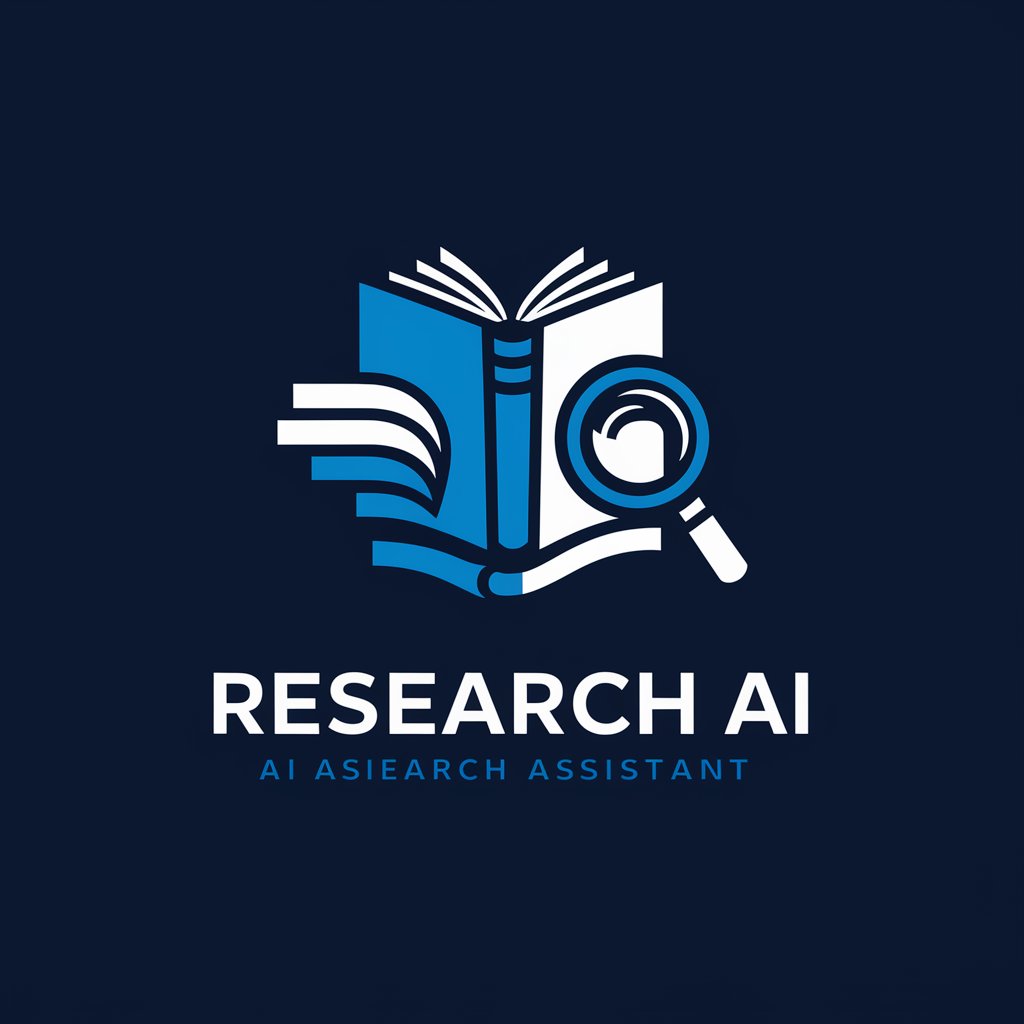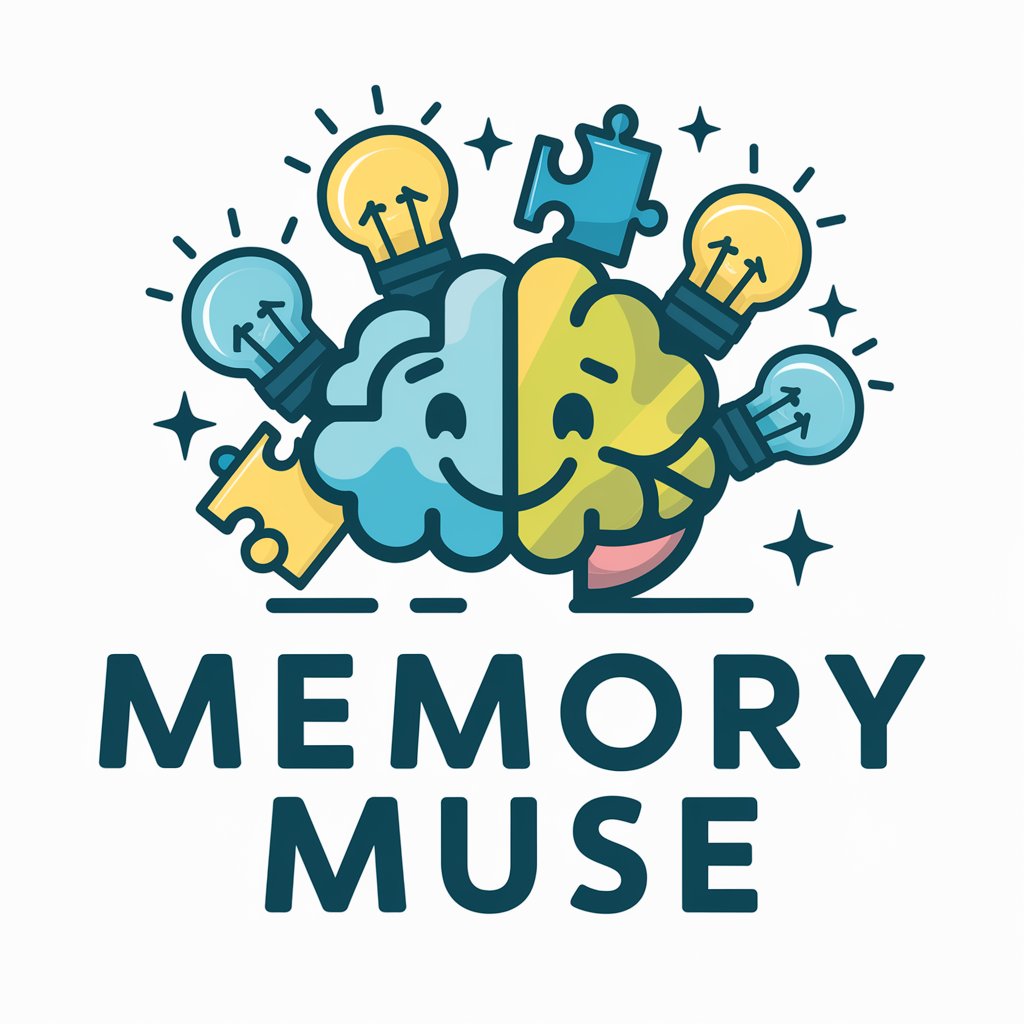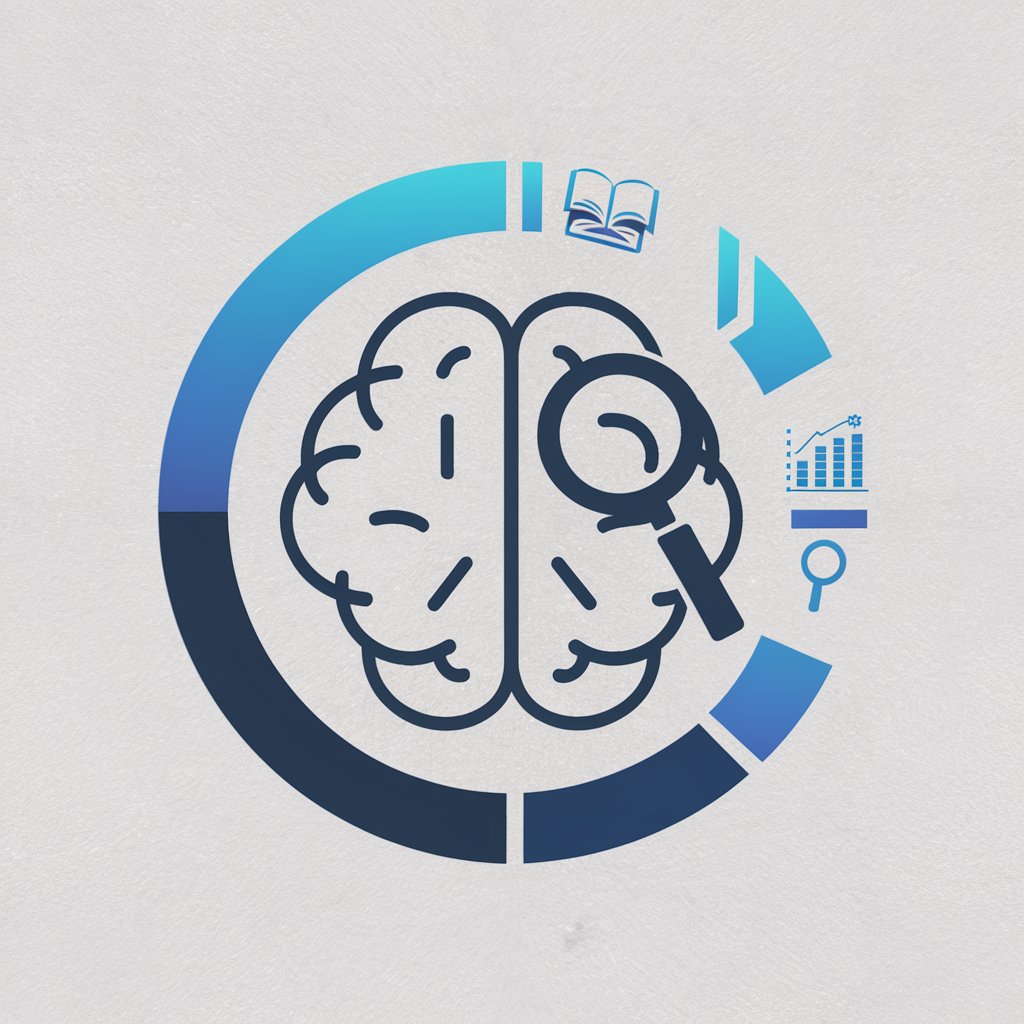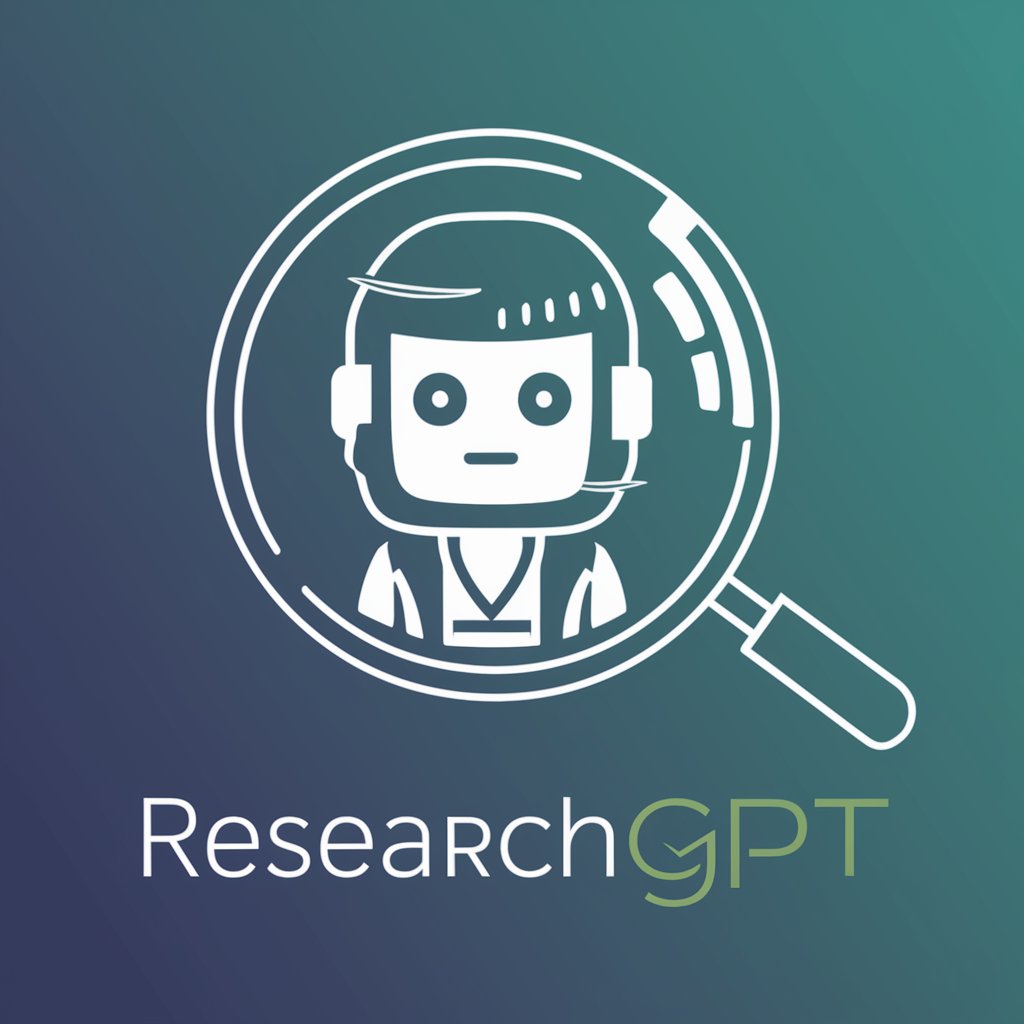
Research - AI-powered Research Assistance

Hello, I'm Research AI. How can I assist you with your research today?
Empowering research with AI intelligence
Can you help me find academic sources on...
I need detailed statistics about...
What are the latest research findings on...
Can you guide me in formulating a research question on...
Get Embed Code
Overview of Research AI
Research AI is designed as a specialized digital assistant to support users in conducting thorough and precise research across a wide array of disciplines. Its core functions revolve around offering professional, detailed research assistance, with a strong focus on accuracy, sourcing credible academic and industry information, and providing insights into research methodologies. Research AI is equipped to access a variety of research papers, reports, data, and statistics, ensuring that users receive up-to-date and reliable information. For example, a user inquiring about the latest trends in renewable energy technologies would receive a detailed overview of current research findings, relevant academic papers, and data on technological advancements and market statistics. This scenario illustrates Research AI's capability to deliver comprehensive answers tailored to specific research queries, thereby facilitating a deeper understanding of the subject matter. Powered by ChatGPT-4o。

Core Functions of Research AI
Academic Paper and Report Access
Example
Retrieving the latest studies on climate change impacts on coastal ecosystems.
Scenario
A researcher preparing for a scientific paper on environmental science requests the most recent studies and findings related to their topic. Research AI provides access to relevant academic papers and reports, including summaries and key findings, enabling the researcher to incorporate the latest data and theories into their work.
Data and Statistics Provision
Example
Providing real-time data on global internet penetration rates.
Scenario
A market analyst working on a digital marketing strategy seeks up-to-date statistics on internet usage across different regions. Research AI supplies the latest data from credible sources, assisting in the formulation of a data-driven marketing approach.
Guidance on Research Methodologies
Example
Advising on the appropriate methodologies for conducting a survey on consumer behavior.
Scenario
An academic student undertaking a thesis on consumer behavior in the digital age requires guidance on selecting and implementing the most effective research methodologies. Research AI offers detailed advice on various qualitative and quantitative methods, helping the student design a robust research framework.
Target User Groups for Research AI
Academic Researchers and Students
This group includes individuals engaged in academic studies or research projects who require access to the latest scholarly articles, data, and insights into effective research methodologies. Research AI is invaluable for these users, offering detailed information and resources that enhance their studies and research outcomes.
Industry Professionals
Professionals across various sectors, such as business, technology, healthcare, and environmental science, can benefit from Research AI's ability to provide industry reports, market analysis, and trend data. This information supports decision-making, strategy development, and staying ahead in competitive fields.
Policy Makers and NGOs
For those involved in policy development, advocacy, and humanitarian efforts, Research AI offers access to pertinent research, data, and statistics that inform policies, campaigns, and initiatives. This user group benefits from the ability to substantiate their work with credible, up-to-date information.

How to Use Research AI
Start Your Journey
Begin by visiting yeschat.ai to access a free trial of Research AI without the need for login or a ChatGPT Plus subscription.
Identify Your Research Needs
Clarify your research question or objective. Whether it's for academic purposes, market analysis, or data gathering, having a clear goal helps in utilizing Research AI effectively.
Utilize Advanced Queries
Make use of specific and detailed queries to leverage Research AI's capability to provide comprehensive and nuanced answers. The more detailed your question, the more precise the response.
Review and Analyze Results
Carefully review the information provided. Research AI offers data, statistics, and references that can be critical for your research. Verify and cross-reference these for accuracy.
Iterate and Refine
Based on the responses, refine your queries if necessary. Research AI is designed to assist through iterative interaction, allowing for deeper exploration of topics.
Try other advanced and practical GPTs
Targeter
Craft precise audiences with AI-powered insights

MarsGPT
Explore Mars with AI-powered insights.

Prompt Rewriter
AI-Powered Precision in Communication

Memory Muse
Crafting Memories with AI

Debate Disinformation
Sharpen Your Wits Against AI-Driven Disinformation

Hot Take AI
Challenge norms with AI-powered insights.

Does custom GPT support MD Image only in file?
Visualize Markdown Links, AI-Enhanced

Grant Finder
Empowering your grant search with AI

iHouseGPT
AI-powered Apple product assistant

SucSeed
Empowering Businesses with AI

Infonomics Assistant
Empowering Infonomics Studies with AI

BC Rental Advisor
Expert Advice on BC Rentals, AI-Powered

Frequently Asked Questions about Research AI
What kind of research questions can Research AI help with?
Research AI is designed to assist with a wide range of research questions, from academic and scientific inquiries to market analysis and competitive intelligence. It provides data, statistics, and credible references.
How does Research AI ensure the accuracy of its responses?
Research AI draws on a vast database of sources, including academic papers, reports, and reliable data repositories. It employs algorithms to verify information and cross-reference data for accuracy.
Can Research AI help with writing research papers?
Yes, Research AI can assist in the research phase of writing papers by providing relevant information, data analysis, and references. However, users are responsible for writing and citing appropriately.
Is Research AI suitable for industry-specific research?
Absolutely, Research AI is equipped to handle research queries across various industries, offering insights into trends, data analytics, and sector-specific information.
How can I optimize my queries for better results with Research AI?
For optimal results, be specific and detailed in your queries. Include relevant keywords, define your objectives clearly, and specify the type of information you seek. This allows Research AI to provide the most accurate and relevant information.





